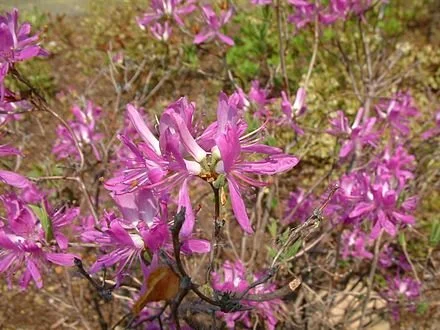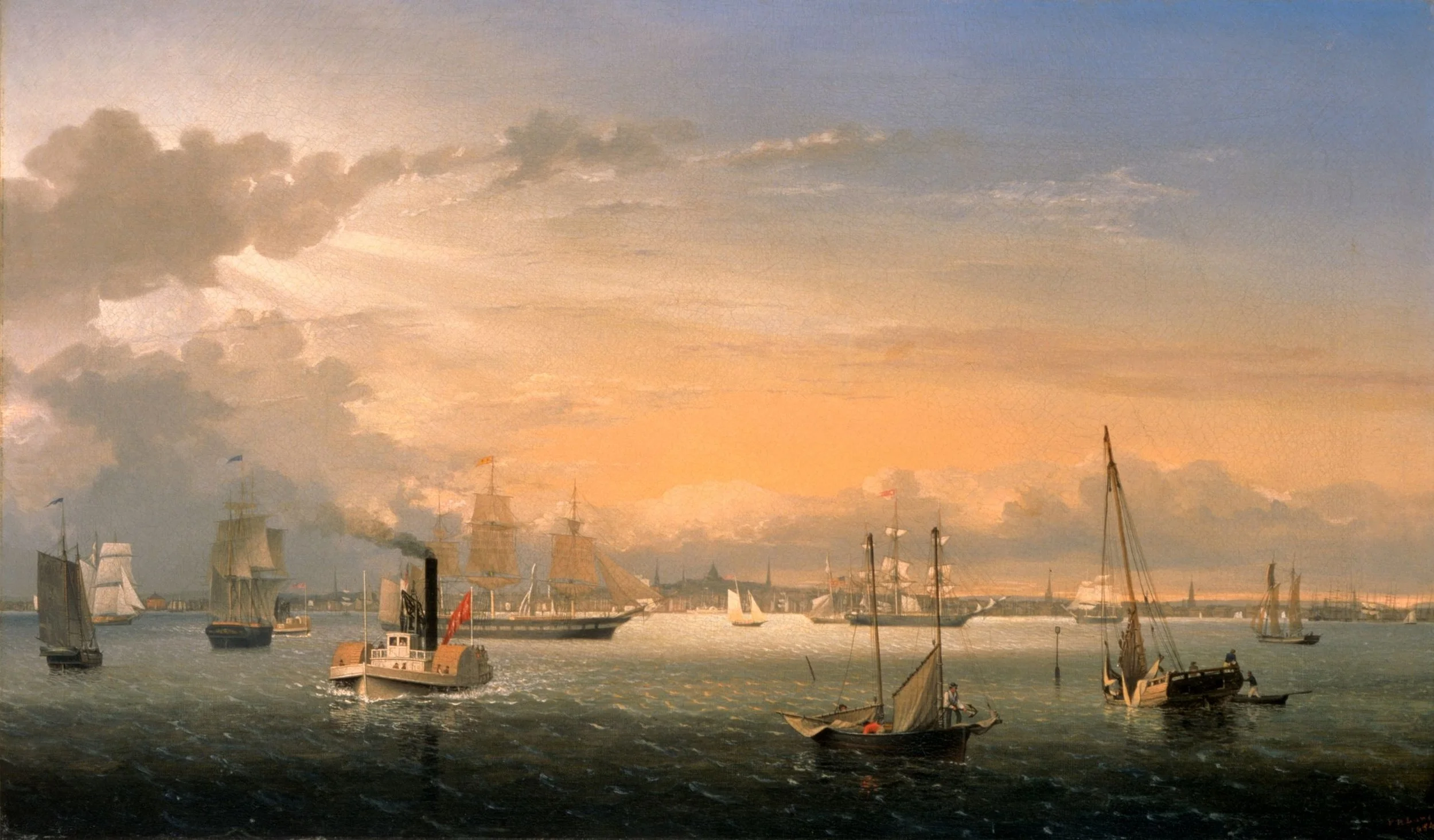
‘Tis only a mirage’
“But this beauty of Nature which is seen and felt as beauty, is the least part. The shows of day, the dewy morning, the rainbow, mountains, orchards in blossom, stars, moonlight, shadows in still water, and the like, if too eagerly hunted, become shows merely, and mock us with their unreality. Go out of the house to see the moon, and 'tis mere tinsel; it will not please as when its light shines upon your necessary journey. The beauty that shimmers in the yellow afternoons of October, who ever could clutch it? Go forth to find it, and it is gone; 'tis only a mirage as you look from the windows of diligence.’’
— Ralph Waldo Emerson (1802-1882), American essayist, poet, philosopher and a leader of the cultural luminaries based in Concord, Mass.
That time again
Rhodora
In May, when sea-winds pierced our solitudes,
I found the fresh Rhodora in the woods,
Spreading its leafless blooms in a damp nook,
To please the desert and the sluggish brook.
The purple petals fallen in the pool
Made the black water with their beauty gay;
Here might the red-bird come his plumes to cool,
And court the flower that cheapens his array.
Rhodora! if the sages ask thee why
This charm is wasted on the earth and sky,
Tell them, dear, that, if eyes were made for seeing,
Then beauty is its own excuse for Being;
Why thou wert there, O rival of the rose!
I never thought to ask; I never knew;
But in my simple ignorance suppose
The self-same power that brought me there, brought you
— “The Rhodora,’’ by Ralph Waldo Emerson (1803-1882), New England-based essayist and philosopher
'Here is best'
Boston Harbor by Fitz Hugh Lane, 1854
— Ralph Waldo Emerson (1803-1882), American essayist, lecturer, philosopher and poet who led the transcendentalist movement of the mid-19th century that was centered in and around Boston.
'Shot heard round the world'
The current version of the Old North Bridge in Concord, site of the first major battle of the Revolutionary War, on April 19, 1775, the date once marked as Patriots Day in Massachusetts, though it is now set for “the third Monday in April.’’ There was a less important skirmish earlier that day in Lexington, down the road. The monument here celebrates that day, as does Emerson’s famous poem.
“Concord Hymn’’
Sung at the Completion of the Battle Monument, July 4, 1837
By the rude bridge that arched the flood,
Their flag to April’s breeze unfurled,
Here once the embattled farmers stood
And fired the shot heard round the world.
The foe long since in silence slept;
Alike the conqueror silent sleeps;
And Time the ruined bridge has swept
Down the dark stream which seaward creeps.
On this green bank, by this soft stream,
We set today a votive stone;
That memory may their deed redeem,
When, like our sires, our sons are gone.
Spirit, that made those heroes dare
To die, and leave their children free,
Bid Time and Nature gently spare
The shaft we raise to them and thee.
The muses are local
"Apollo and the Muses on Mount Helicon'' (1680), by Claude Lorrain.
"Where the heart is, there the muses, there the gods sojourn, and not in any geography of fame. Massachusetts, Connecticut River, and Boston Bay, you think paltry places, and the ear loves names of foreign and classic topography. But here we are; and, if we tarry a little, we may come to learn that here is best. See to it, only, that thyself is here;--and art and nature, hope and fate, friends, angels, and the Supreme Being, shall not absent from the chamber where thou sittest.''
-- Ralph Waldo Emerson
Upon having our swelter quota
"Our fear of death is like our fear that summer will be short, but when we have had our swing of pleasure, our fill of fruit, and our swelter of heat, we say we have had our day."
-- Ralph Waldo Emerson
'Tumultuous privacy'
"Announced by all the trumpets of the sky,
Arrives the snow, and, driving o'er the fields,
Seems nowhere to alight: the withered air
Hides hills and woods, the river, and the heaven,
And veils the farm-house at the garden's end.
The sled and traveler stopped, the courier's feet
Delayed, all friends shut out, and housemates sit
Around the radiant fireplace, enclosed
In a tumultuous privacy of storm."
-- Ralph Waldo Emerson
The island of the Unitarians
"Trap Dike, Star Island'' (oil on canvas) , by CHRIS VOLPE, at Alpers Fine Art, Andover, Mass.
Star Island is one of those tiny bodies of land off New Hampshire that comprise the Isles of Shoals. It has long been a summer retreat for Unitarians, that quintessentially New England denomination that mostly evolved from such Transcendentalists as Ralph Waldo Emerson.






